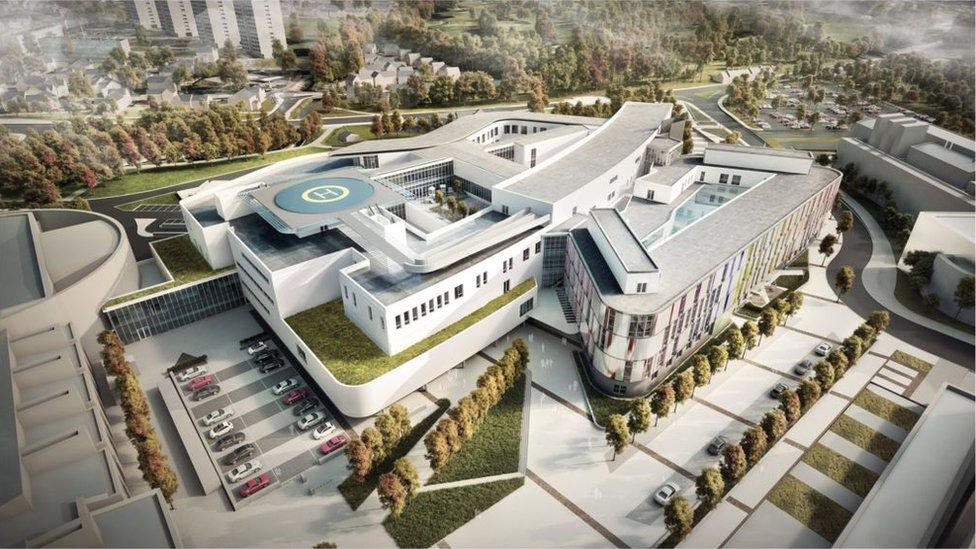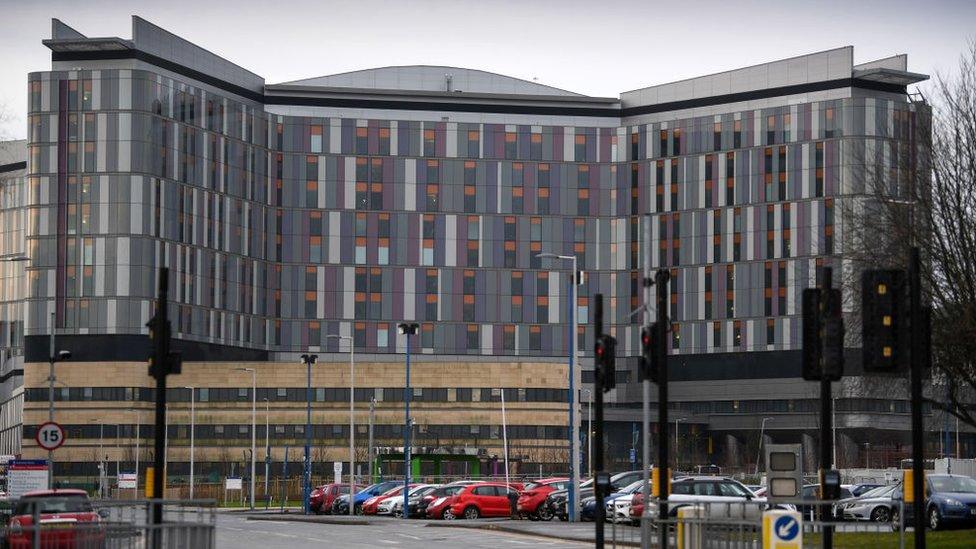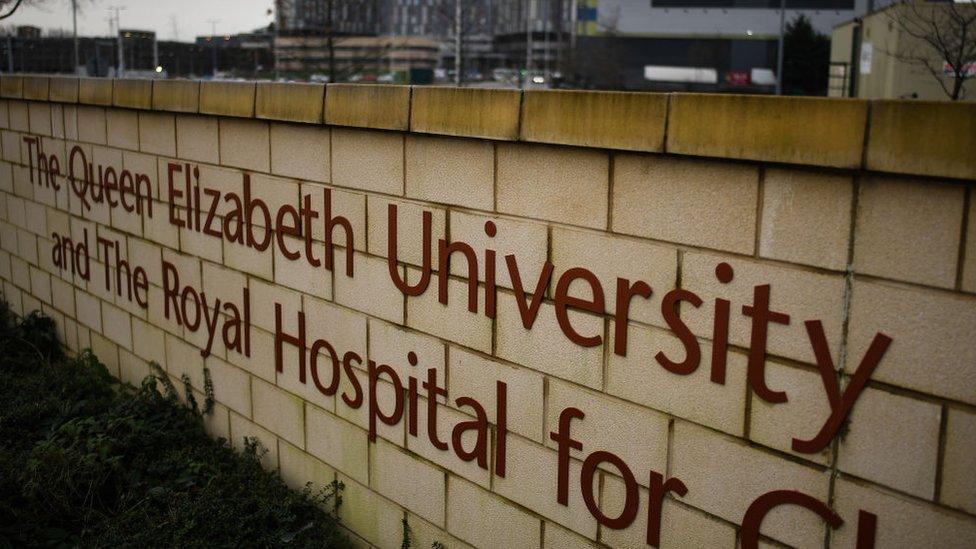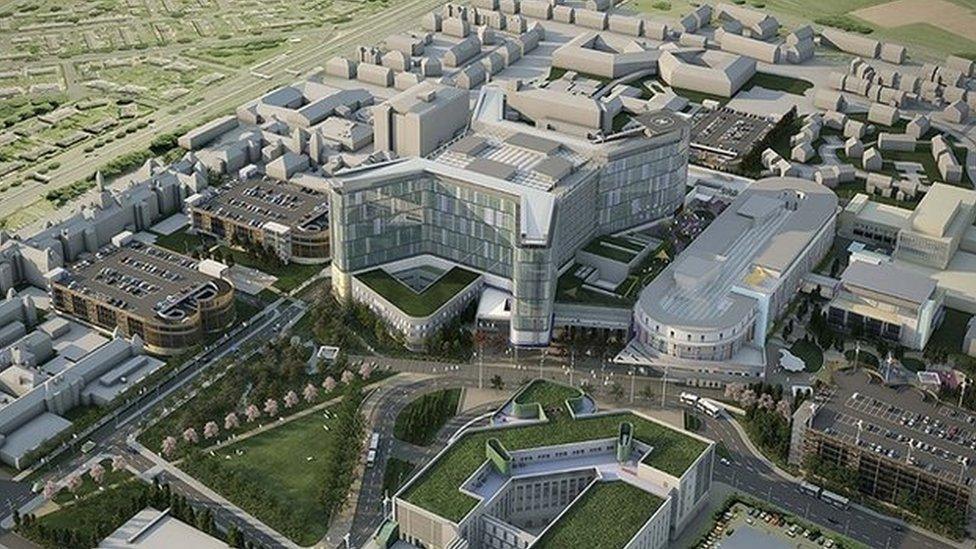Scottish hospitals inquiry: What is being investigated?
- Published

The new Royal Hospital for Children and Young People was originally due to open in 2017
The public inquiry into safety and wellbeing issues at two Scottish hospitals is due to resume on Monday. This latest stage will hear evidence on the importance of ventilation systems in infection prevention and control.
Why is the inquiry being held and what is it covering?

The inquiry is being chaired by Lord Brodie QC and is examining issues at the Queen Elizabeth University Hospital (QEUH) in Glasgow, and the Royal Hospital for Children and Young People (RHCYP) and Department of Clinical Neurosciences in Edinburgh.
The RHCYP in Edinburgh was due to open in July 2019 but was delayed after last-minute inspections found safety concerns over its ventilation systems.
The Scottish government then stepped in to prevent the hospital from opening just one day before it was due to accept patients.
Health Secretary Jeane Freeman said in September 2019 that the hospital would not be fully operational for at least another year.

The Queen Elizabeth University Hospital in Glasgow opened in 2015
The £840m QEUH campus in Glasgow opened in April 2015 and has faced a series of contamination incidents since then, linked to issues with water quality and ventilation systems.
An independent review into the hospital's design published its findings in June 2020..
The report found a "series of problems" with the design and build of the hospital, but no clear evidence to link those failures to any "avoidable deaths".
What is the format of the inquiry?
The statutory public inquiry is being led by a High Court judge and held under the Inquiries Act 2005.
This gives it the power to require witnesses to attend and to disclose information related to the inquiry's work.
The inquiry team is independent - with its conduct, procedures and lines of investigation driven by the chairman Lord Brodie.
The inquiry may take a few years and could be paused if other investigations at the QEUH turn into a criminal prosecution.
Witnesses will be called after the inquiry team has considered the evidence.
Why did the Scottish government order the inquiry?
Jeane Freeman said in June 2020 that the inquiry had been ordered to protect the "safety and well-being of all patients and their families", which the health secretary said should be a "primary consideration" in all NHS construction projects.
"I want to make sure this is the case for all future projects, which is why, following calls from affected parents, I announced a public inquiry to examine the new Royal Hospital for Children and Young People and Department of Clinical Neurosciences and the Queen Elizabeth University Hospital sites," she added.
The new £150m RHCYP in Edinburgh has now been delayed for five years. It was initially due to open in 2017.
First Minister Nicola Sturgeon has said she "deeply regrets" the hold-up, caused by problems with the specification of the ventilation system.
The announcement of the inquiry also followed a series of infection outbreaks - and at least four deaths - at the QEUH.

A number of deaths at the Queen Elizabeth University Hospital are being investigated
A BBC Scotland investigation in June 2020 also spoke to senior doctors at the hospital who said their attempts to raise concerns about risks to patient safety were not taken seriously.
They told BBC Scotland's Disclosure they were branded as troublemakers for raising the alarm.
What is the inquiry covering?
The inquiry describes its "overarching aim", external as considering the "planning, design, construction, commissioning and, where appropriate, maintenance" of both the hospitals.
It will determine how ventilation and water contamination issues affected patient safety and care - and whether these issues could have been prevented.
The inquiry will also recommend how "past mistakes" can be avoided in future NHS projects.
Other areas the inquiry team is investigating include the management of the projects by NHS Greater Glasgow and Clyde and NHS Lothian - and whether the "organisational culture" at the health boards encouraged staff to raise concerns.
It will also consider whether individuals or bodies "deliberately concealed or failed to disclose evidence of wrongdoing or failures" during the projects.
The inquiry will report back to Scottish ministers when it has concluded its findings.
- Published3 August 2020

- Published20 December 2019
